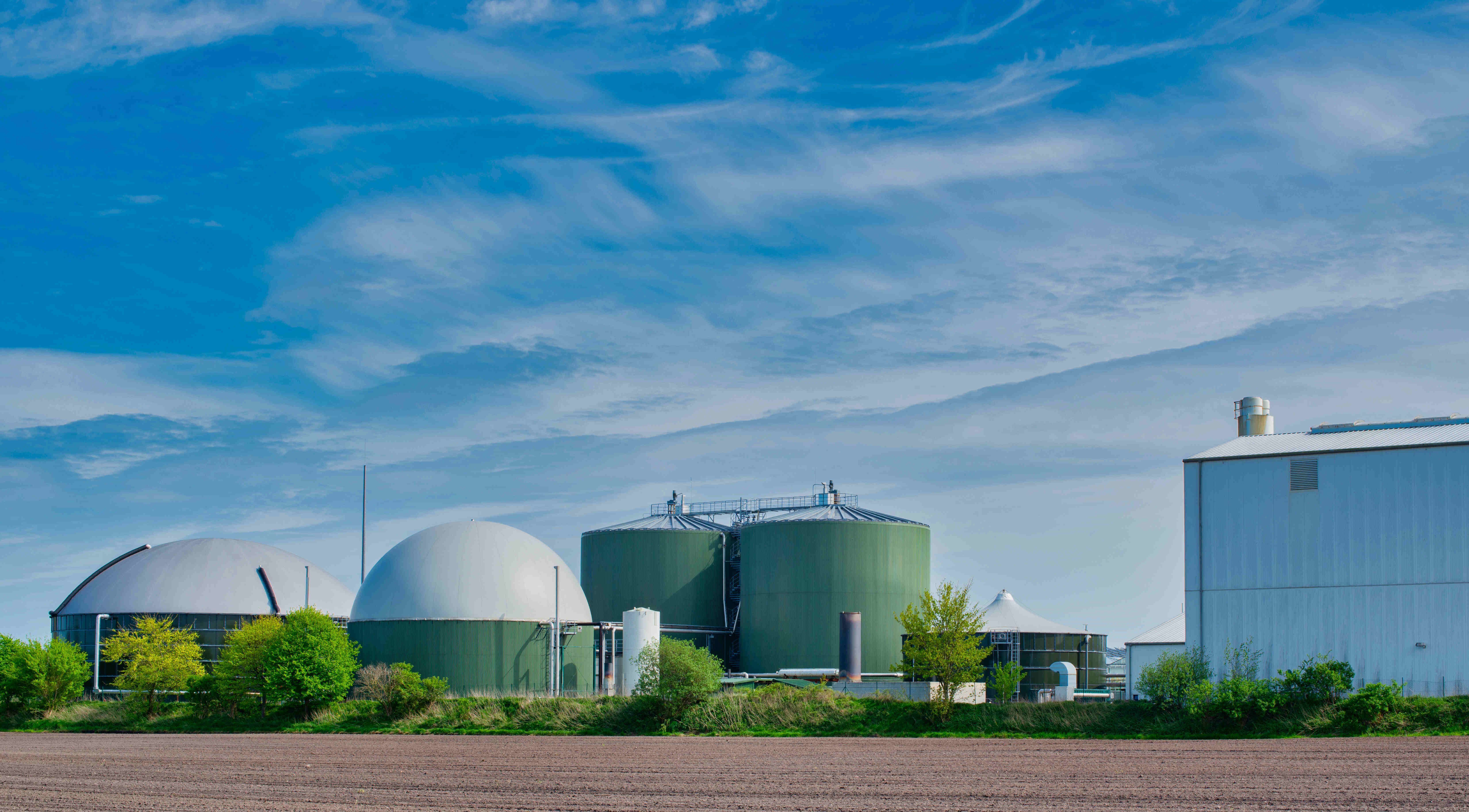Removing VOCs from biogas to upgrade to biomethane
For communities throughout Europe, municipal organic waste collections have become the norm. Even Christmas trees can be collected, put into anaerobic digesters, and used as the source material for biogas. This biogas contains not only methane, which can then be upgraded into valuable biomethane, but also CO2 and contaminants known as Volatile Organic Compounds (VOCs), such as terpenes and siloxanes. These can cause damage to biogas engines or other purification technology.
One molecule of terpene, the alpha-pinene, produces that lovely Christmas tree scent that you enjoy in your home during December. However, other terpenes produce less pleasant emissions that can not only damage equipment such as membranes, but also cause a major odour nuisance.
DESOTEC's activated carbon filters can remove VOCs at various stages of the biogas upgrading process, depending on the biomethane technology used.
Two common methods of producing biomethane are high pressure water scrubbers and amine scrubbers. In both cases, DESOTEC filters can capture VOCs either before or after the scrubbing process, to avoid causing damage to the equipment.
A third method is membrane technology. This involves pushing raw biogas through membranes at very high pressure to separate the valuable methane from the CO2 and other components. However, the VOCs that are contained in raw biogas not only cause environmental harm and odour issues but would also block the membrane. This would reduce the efficiency of the membrane, meaning that it would no longer be possible to reach the required biogas quality. The plant's performance would therefore be reduced. Furthermore, blocked membranes deteriorate over time, and are costly to replace.
DESOTEC filters are highly effective at clearing VOCs from the raw biogas before it is put through the membrane separation process, making for a more efficient, cost-effective and sustainable process.
The problem
Two companies in northern Italy, which handle municipal organic waste, were considering using membrane technology to produce biomethane to generate electricity and heating.
The companies were therefore aware that they needed to filter out VOCs from the raw biogas before the membrane stage.
They considered using fixed filters. However, given the high quantities of carbon involved, they realised that this would potentially involve several employees working continuously just to empty and refill the filters on site.
Instead, they looked for external solutions.
DESOTEC became involved at the design stage after being recommended to the companies by the supplier of the membrane upgrading package.


The solution
DESOTEC advised the companies to fit filters from its AIRCON series, which are designed to process air and gases.
There were several key reasons why the companies chose DESOTEC as their partner.
Firstly, DESOTEC has unparalleled knowledge about activated carbon. It was able to explain to the companies how it works, what size of filter to use, and how to employ two filters in series. All this was new to the clients.
Secondly, DESOTEC has a regional presence in Italy. Spent filters are exchanged swiftly and easily transported away from the clients' sites so they do not need to handle carbon themselves. They are then taken to the DESOTEC warehouse near Milan for treatment and refilling.
Another big advantage is that DESOTEC reduces overall carbon consumption by reactivating the spent carbon, which is a major cost saving.
Finally, DESOTEC is also certified to handle dangerous waste, which is how the waste carbon from these applications is designated by the Italian authorities. It has employees who can handle the necessary paperwork and a good reputation with the relevant authorities.
The results
For both companies, the DESOTEC filters are proving to remove all VOCs to below detection levels.
With DESOTEC's advice, the membrane upgrading package supplier has set a limit of 10 ppm. When the clients see even the tiniest amount of VOC break-through of the carbon filters, they call DESOTEC for a filter change.
This gives the companies some leeway: they can continue to function while waiting for the replacement filter, in the knowledge that they are still operating well within legal limits.
DESOTEC provides not just mobile filters, but also very close follow-up. It helped the clients evaluate results every day at first, then later on a weekly basis. This real-time data can be used to enhance the system's performance.
Contact DESOTEC today
To find out how DESOTEC's mobile filtration solutions can help your company reduce VOCs from biogas so that it can be upgraded into valuable biomethane, contact DESOTEC today.
Contact our expertsContact DESOTEC today
To find out how DESOTEC's mobile filtration solutions can help your company reduce VOCs from biogas so that it can be upgraded into valuable biomethane, contact DESOTEC today.
Contact our experts-
Air & gas purification
Our sustainable filtration solutions ensure air purification, odour control, and high quality process gases such as biogas and biomethane. -
Our unique service
Our closed-loop, full-service model is as unique as your business needs. We’ll define the right filtration setup and safely recycle filtration waste, making it easy to go green. -
Your sustainability journey
We care about protecting our air, water and soil for future generations, just like you. Our filtration solutions help you meet environmental standards, reducing your carbon footprint.


